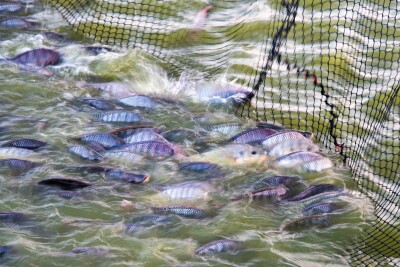Way back in 1977—the year Star Wars came out, British Airways launched Concorde SST service between London and New York, and Jimmy Carter signed legislation creating the Department of Energy—NASA published an exceptionally forward-looking report called “The Role of Aerospace Technology in Agriculture.” Its purpose was to figure out how to feed a ballooning world population given the Earth’s limited resources—using space-age technology. Oddly enough, amid high-minded discussions about the aerial application of chemicals and remote-sensing systems, was tucked this suggestion: Perhaps humans could subsist wholly—or partially—on a diet of krill.
The succinct proposal clearly fell to the wayside and remained buried in the NASA report until we happened upon it recently. It got us thinking: What if we humans had actually embraced this notion back in the day and had become a race of krill-eating beings? Was this forgotten report from the 70s a viable proposal for saving the future of mankind?
Krill, of course, are the tiny, shrimp-like crustaceans that are found near the rock bottom of the food chain. They feed on phytoplankton and—because they are protein-rich—are a primary food source for larger fish, which eventually get eaten by us. Although some nations certainly do make use of krill as a food stuff—the Japanese call it okiami, and Norwegians eat krill paste with crackers—in most of the world, krill is just used as fish feed in aquaculture. Vitamins are also made with their oil, and certain enzymes found in krill are used in various food and medical products. However, not eating them is understandable, too—krill are quite salty, and each crustacean’s hard exoskeleton must be removed before being eaten because it contains contains fluorine, which is toxic in high enough concentrations. But still, if humankind’s sustainability problems could be saved by krill, maybe we should figure out a way to use them as sustenance. Who needs Soylent or crickets if the oceans are filled to the brim with underutilized krill, right?
Evidently not.






